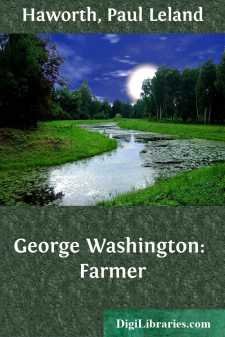Categories
- Antiques & Collectibles 13
- Architecture 36
- Art 48
- Bibles 22
- Biography & Autobiography 813
- Body, Mind & Spirit 142
- Business & Economics 28
- Children's Books 17
- Children's Fiction 14
- Computers 4
- Cooking 94
- Crafts & Hobbies 4
- Drama 346
- Education 46
- Family & Relationships 57
- Fiction 11829
- Games 19
- Gardening 17
- Health & Fitness 34
- History 1377
- House & Home 1
- Humor 147
- Juvenile Fiction 1873
- Juvenile Nonfiction 202
- Language Arts & Disciplines 88
- Law 16
- Literary Collections 686
- Literary Criticism 179
- Mathematics 13
- Medical 41
- Music 40
- Nature 179
- Non-Classifiable 1768
- Performing Arts 7
- Periodicals 1453
- Philosophy 64
- Photography 2
- Poetry 896
- Political Science 203
- Psychology 42
- Reference 154
- Religion 513
- Science 126
- Self-Help 84
- Social Science 81
- Sports & Recreation 34
- Study Aids 3
- Technology & Engineering 59
- Transportation 23
- Travel 463
- True Crime 29
George Washington: Farmer
Description:
Excerpt
CHAPTER I
A MAN IN LOVE WITH THE SOIL
One December day in the year 1788 a Virginia gentleman sat before his desk in his mansion beside the Potomac writing a letter. He was a man of fifty-six, evidently tall and of strong figure, but with shoulders a trifle stooped, enormously large hands and feet, sparse grayish-chestnut hair, a countenance somewhat marred by lines of care and marks of smallpox, withal benevolent and honest-looking--the kind of man to whom one could intrust the inheritance of a child with the certainty that it would be carefully administered and scrupulously accounted for to the very last sixpence.
The letter was addressed to an Englishman, by name Arthur Young, the foremost scientific farmer of his day, editor of the Annals of Agriculture, author of many books, of which the best remembered is his Travels in France on the eve of the French Revolution, which is still read by every student of that stirring era.
"The more I am acquainted with agricultural affairs," such were the words that flowed from the writer's pen, "the better I am pleased with them; insomuch, that I can no where find so great satisfaction as in those innocent and useful pursuits. In indulging these feelings I am led to reflect how much more delightful to an undebauched mind is the task of making improvements on the earth than all the vain glory which can be acquired from ravaging it, by the most uninterrupted career of conquests."
Thus wrote George Washington in the fulness of years, honors and experience. Surely in this age of crimson mists we can echo his correspondent that it was a "noble sentiment, which does honor to the heart of this truly great man." Happy America to have had such a philosopher as a father!
"I think with you that the life of a husbandman is the most delectable," he wrote on another occasion to the same friend. "It is honorable, it is amusing, and, with judicious management, it is profitable. To see plants rise from the earth and flourish by the superior skill and bounty of the laborer fills a contemplative mind with ideas which are more easy to be conceived than expressed."
The earliest Washington arms had blazoned upon it "3 Cinque foiles," which was the herald's way of saying that the bearer owned land and was a farmer. When Washington made a book-plate he added to the old design spears of wheat to indicate what he once called "the most favorite amusement of my life." Evidently he had no fear of being-called a "clodhopper" or a "hayseed!"
Nor was his enthusiasm for agriculture the evanescent enthusiasm of the man who in middle age buys a farm as a plaything and tries for the first time the costly experiment of cultivating the soil. He was born on a plantation, was brought up in the country and until manhood he had never even seen a town of five thousand people. First he was a surveyor, and so careful and painstaking was he that his work still stands the test. Later he became a soldier, and there is evidence to show that at first he enjoyed the life and for a time had military ambitions. When Braddock's expedition was preparing he chafed at the prospect of inaction and welcomed the offer to join the general's staff, but the bitter experiences of the next few years, when he had charge of the herculean task of protecting the settlers upon the "cold and Barren Frontiers ... from the cruel Incursions of a crafty Savage Enemy," destroyed his illusions about war. After the capture of Fort Duquesne had freed Virginia from danger he resigned his commission, married and made a home. Soon after he wrote to an English kinsman who had invited him to visit London: "I am now I believe fixed at this seat with an agreeable Consort for Life....


